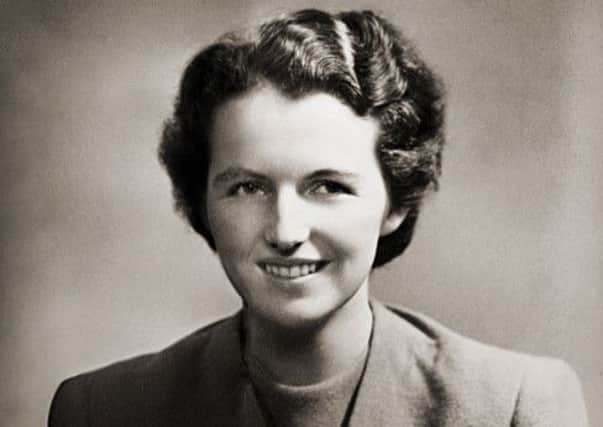Obituary: Mavis Batey, MBE, cryptologist


Mavis Batey was one of the group of Bletchley Park codebreakers who deciphered the Enigma code and so greatly assisted the victory in the Second World War. General Eisenhower famously pronounced that the work done at Bletchley “helped shorten the war by two years”. Indeed, Batey and her colleagues often read the orders from Hitler to the German High Command before the German generals at the front.
Batey was one of the first female cryptologists at Bletchley in 1941, joining the team that cracked the ciphers that resulted in the Royal Navy’s victory at the battle of Matapan just off the Greek coast – a victory that kept open the vital naval supply lines to Egypt.
Advertisement
Hide AdAdvertisement
Hide AdMavis Lilian Lever was the daughter of a postal worker and read German at University College, London. On the outbreak of the war she gave up her studies to become a nurse. Her fluent German ensured she was soon seconded to the Ministry of Economic Warfare but she was then interviewed at the Foreign Office for an undisclosed job.
She was informed that she would be posted to Bletchley Park – which meant nothing to her. However, on being informed of its work she joked: “So I thought, great. This is going to be an interesting job, Mata Hari, seducing Prussian officers. But I don’t think either my legs or my German were good enough.”
Immediately, her flair and skill proved essential in the research unit run by Dilly Knox at Bletchley. All his “girls” worked in a special unit – The Cottage – and were known as the Dilly Girls. They specialised in cracking new codes and ciphers. It was a huge responsibility and demanded a supreme application of mind and imagination.
“It was a strange little outfit in the Cottage.” Batey recalled. The first thing she was asked was, ‘Have you got a pencil?’ She then had a lecture on technology from which she learnt little. “We were all thrown in at the deep end.”
It taught this most resourceful lady to think for herself. The technology was new and unfamiliar and the Dilly Girls had to look out for new traffic and any changes in coding styles. One slip and key information could be missed.
The prelude to the Battle of Matapan was clandestine and had the ring of James Bond about it. Bletchley transmitted information to Admiral Andrew Cunningham, commander of the RN’s Mediterranean Fleet, that the Italian fleet was mobilising.
In Batey’s colourful description, Cunningham “did a Drake” and coolly turned up at the Alexandria golf course with his clubs, giving the impression he was off for a round. The Japanese consul immediately informed the German spies that clearly the RN was not about to leave port. Under cover of darkness, Cunningham set sail to confront the Italians.
Later, Cunningham visited Bletchley and took Batey and a colleague to the local pub to celebrate. Matapan ensured the Italian navy never ventured from port again until Cunningham accepted their surrender in 1943.
Advertisement
Hide AdAdvertisement
Hide AdOther major achievements with which Batey was connected included the breaking of the Enigma cipher used by the German secret service, the dreaded Abwehr.
The Double Cross system allowed MI5 and MI6 to identify German agents, “turn them” and feed them false information. At a stroke, Britain confused the German authorities and Bletchley, in turn, knew their misinformation was being believed in Berlin.
These false messages played a vital part in convincing Hitler that the D-Day invasion was to disembark from East Anglia and Kent.
Had they had the slightest inclination the invasion was to land in Normandy, the outcome could have been very different.
Batey was billeted at a local farm where things were far from easy. “Food was scarce. I babysat the children, helped on the farm; I did my own washing and ironing,” she said.
After the war Batey brought her drive and enthusiasm to further the preservation of historic gardens. Her interest began when her husband Keith (who was a mathematician at Bletchley) was the Secretary of the Chest – the finance controller of Oxford University.
She became the driving force behind various schemes to improve gardens and was the president of the Garden History Society in 1985.
All staff at Bletchley were bound by the Official Secrets Act and they were not allowed to even mention their service during the war. “My own children were kept in the dark. Not the slightest detail.” Batey wrote. “You had to forcibly forget for 30 years.”
She was awarded an MBE in 1986 and took immense pride in creating a garden trail at Bletchley Park in 2004. Keith Batey died in 2010. They had a son and two daughters.